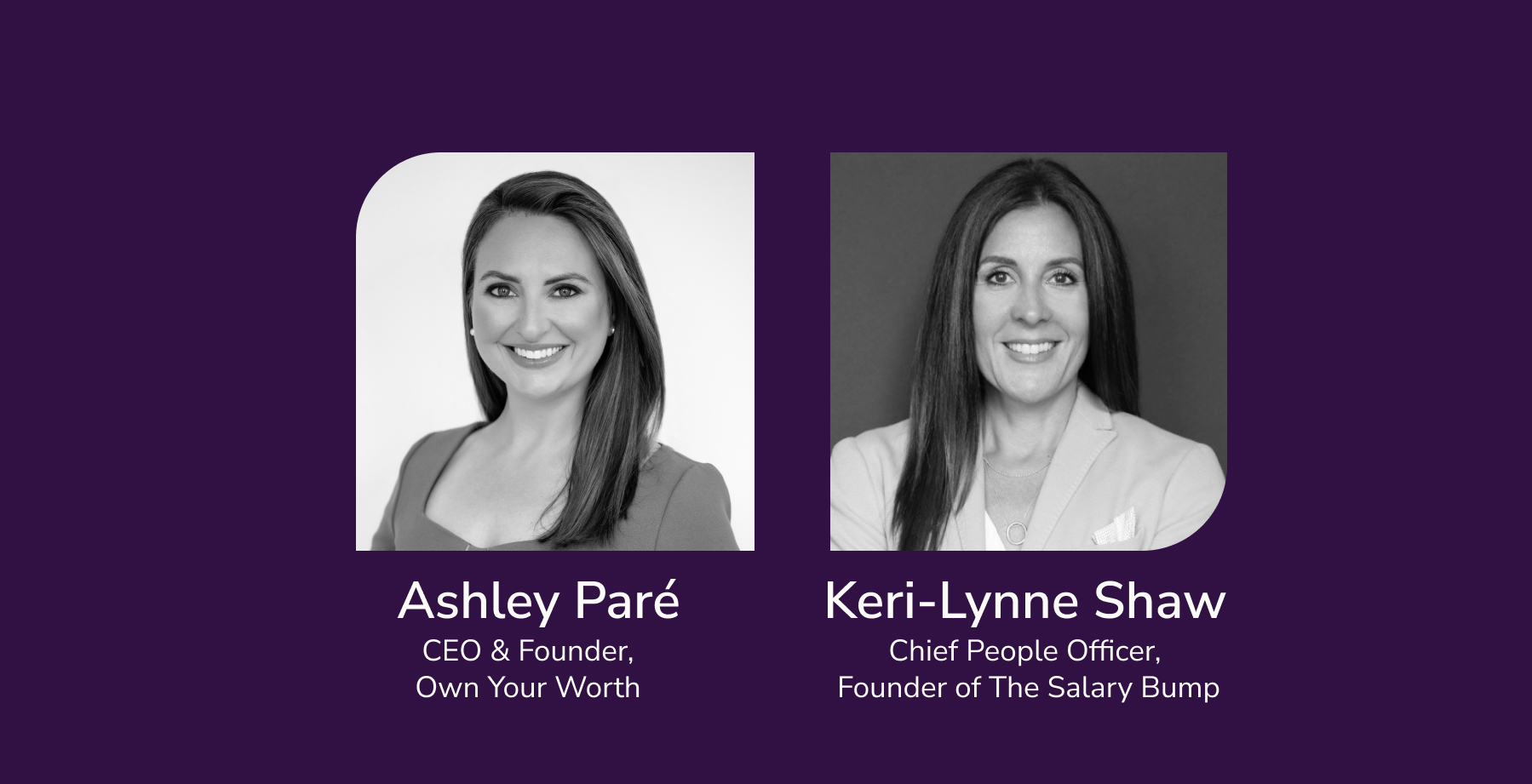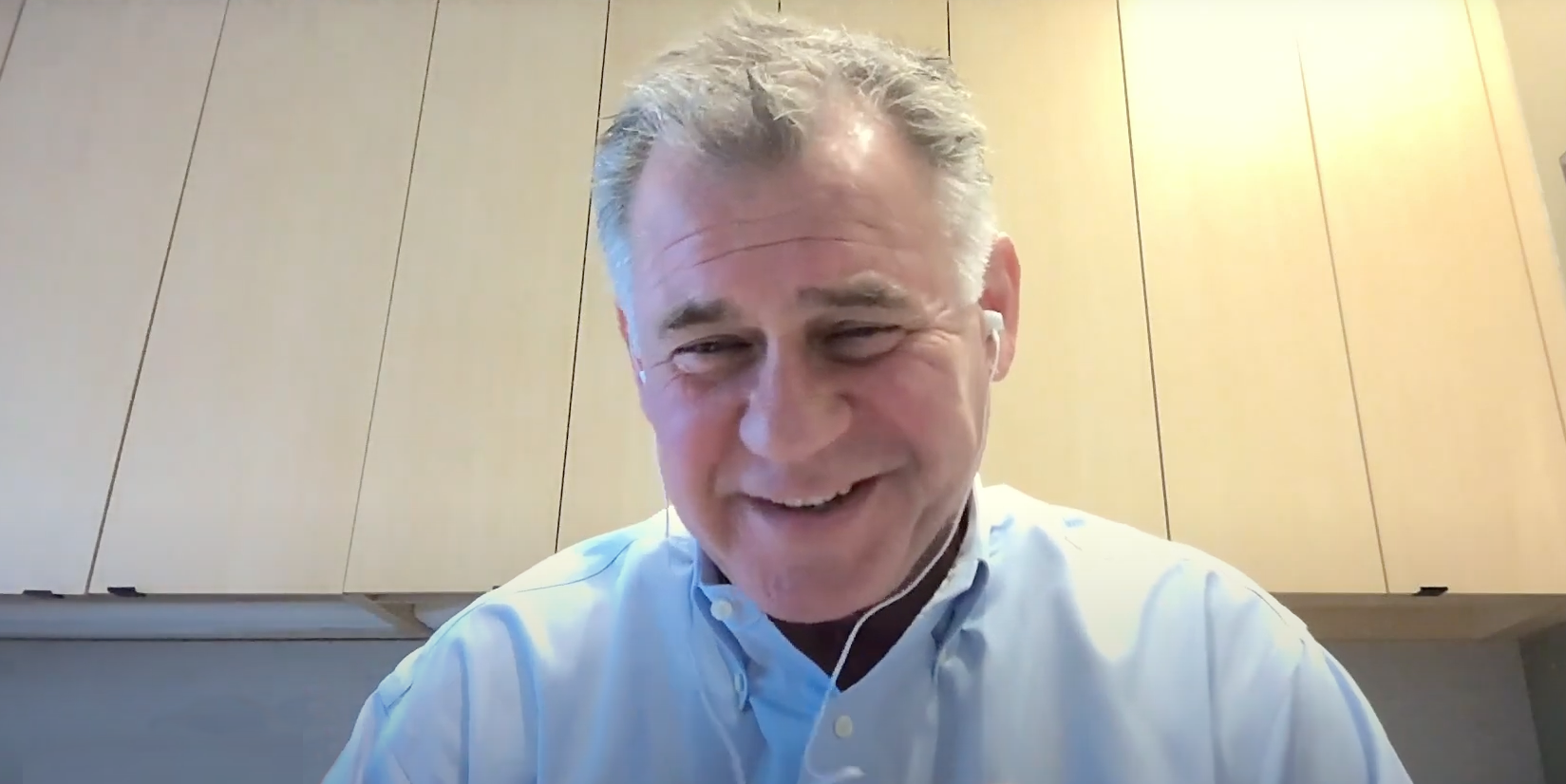On August 26th, a dynamic conversation unfolded between Keri-Lynne Shaw, Chief People Officer and founder of The Salary Buff, and Ashley Paré, CEO of Own Your Worth, moderated by Erin Biehl. The focus was on a topic often avoided in the workplace but essential for organizational growth: creating a healthy conflict culture. Here are the key takeaways from this engaging webinar:
1. Why organizations avoid conflict
The webinar kicked off with an exploration of why fostering a culture of feedback and conflict resolution is so challenging. Shaw didn’t hesitate to name the main culprit: fear. “People avoid having the conversation because they’re afraid of the outcome, afraid of how the other person may react,” she said. This fear permeates organizations, making it difficult for employees and leaders alike to address issues openly. Paré added, “We don’t typically grow up learning the language of feedback or conflict, so we carry these fears into the workplace.” The result? Conflict avoidance becomes the default, leading to deeper issues within the organization.
2. The true cost of avoiding conflict
Both speakers emphasized the heavy cost of avoiding conflict, and it goes far beyond just workplace tension. “When conflict is avoided, the consequences are significant,” Shaw explained. “It leads to mental health issues, anger, quiet quitting, and can even seep into your home life.” On a broader level, Paré highlighted that avoidance affects business outcomes as well. “Talent becomes underdeveloped, silos form and key opportunities are missed,” she said. When top leaders aren’t aware of what’s really happening within the organization, business decisions suffer, and the impact on the bottom line can be detrimental.
3. What a healthy conflict culture looks like
The discussion then moved to what an organization looks like when it embraces conflict in a healthy way. Shaw shared her experience, emphasizing that it starts with trust and transparency. “You have to create environments where people feel safe to speak up,” she said. “Instead of saying, ‘Are you open to feedback?’—which can trigger fear—try saying, ‘I’d love to talk about the meeting we had earlier. Is now a good time?'” These subtle shifts in communication help foster a culture where feedback is constructive, not feared.
Paré echoed these sentiments, stressing that conflict resolution is a skill that needs to be developed. “It’s like building a muscle,” she said. “Avoidance makes sense when you’re afraid, but with practice, healthy conflict becomes easier. It’s about creating environments where people feel heard and valued.”
4. How leaders can build a healthy conflict culture
Both Shaw and Paré provided actionable advice for leaders striving to build a culture of healthy conflict. “Leaders need to take ownership of their role in creating a safe space for feedback,” said Shaw. “It’s not about solving the problem for your team, but about guiding them to find the solution themselves. Ask open-ended questions like, ‘How did you feel that meeting went?’ or ‘What could we do differently next time?'” Shaw emphasized that trust is foundational—without it, healthy conflict cannot exist.
Paré also spoke about the importance of preparation and adaptability in leadership. “From the beginning, ask your team how they prefer to give and receive feedback,” she said. “That way, you create an environment of openness from the start.” She also pointed out that setting expectations early—especially with new hires—helps build trust and communication long-term. “It’s about building relationships, not just managing tasks,” she added.
5. Preparing for difficult conversations
Shaw and Paré closed by offering practical tips for handling difficult conversations. Shaw advised, “Take the emotion out of it and reflect before you respond. Map out what you want to say so that you’re responding thoughtfully, not reacting impulsively.” Paré built on this with her acronym for dealing with fear: FEAR—Feel, Evaluate, Accept, Respond. “Feel whatever you’re feeling, but don’t let it control the conversation,” she said. “Evaluate the situation, accept what’s within your control, and respond with clarity.”
Final thoughts
In their closing remarks, both Shaw and Paré emphasized the importance of embracing conflict for the overall health of the organization. Shaw offered words of encouragement to HR and L&D professionals: “You have one of the most challenging and important jobs in the company. You bring depth and breadth of knowledge, and it’s vital that you lead with trust and transparency.” Paré echoed this sentiment, reminding listeners, “Own your worth and the value you bring. Keep practicing these conversations, and you’ll create environments where both people and businesses can thrive.”
In summary, the key message was clear: avoiding conflict comes at a high cost, but with trust, transparency, and open communication, organizations can create healthier, more productive workplaces.
For a deeper dive into the conversation, watch the full video here:




